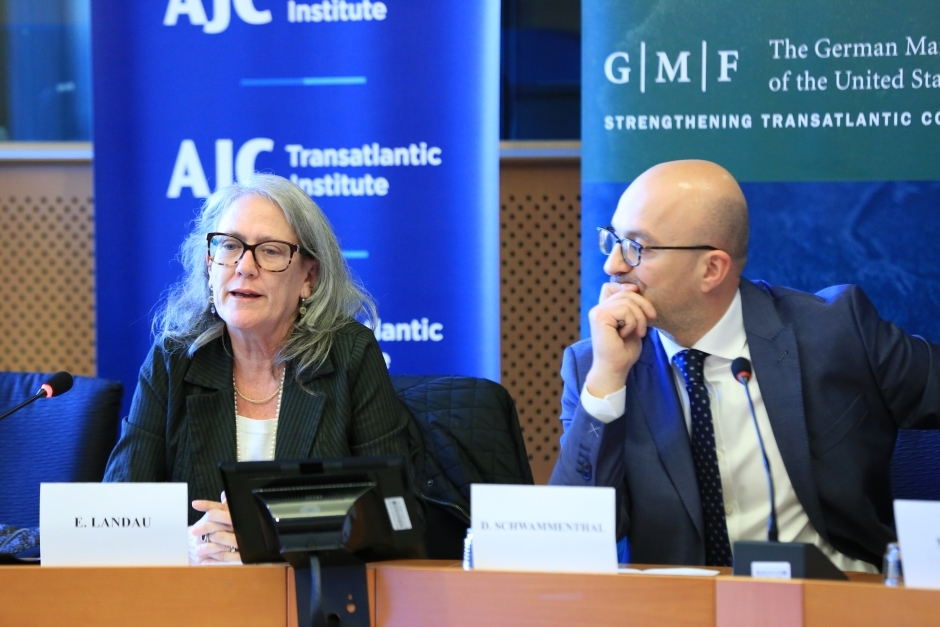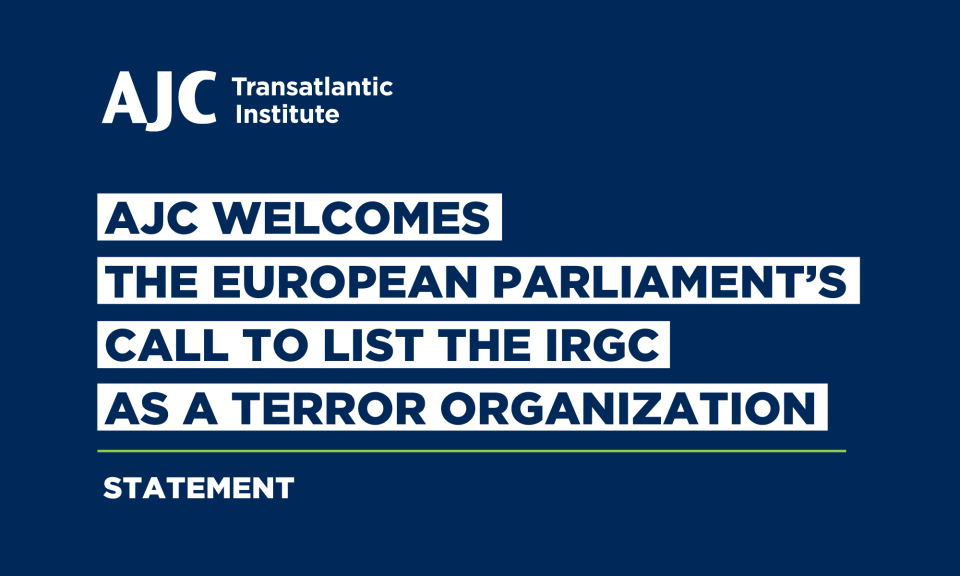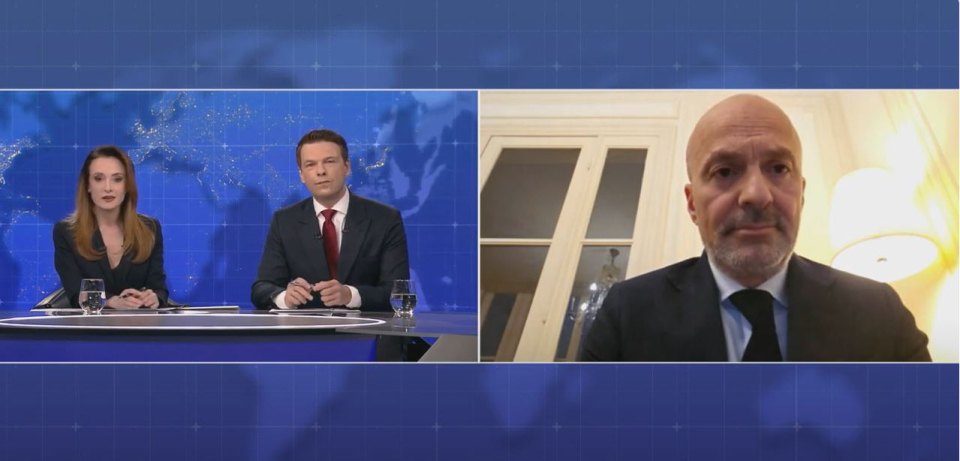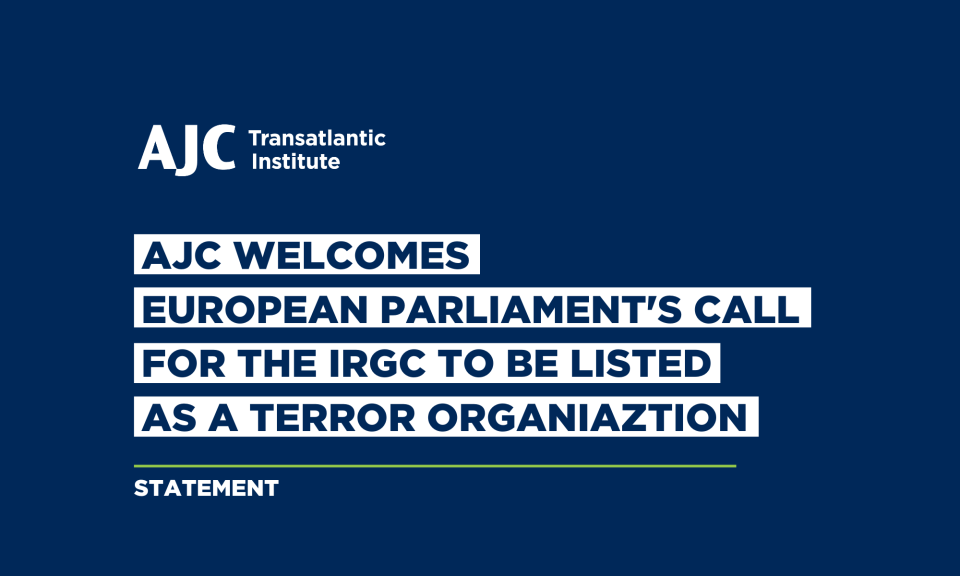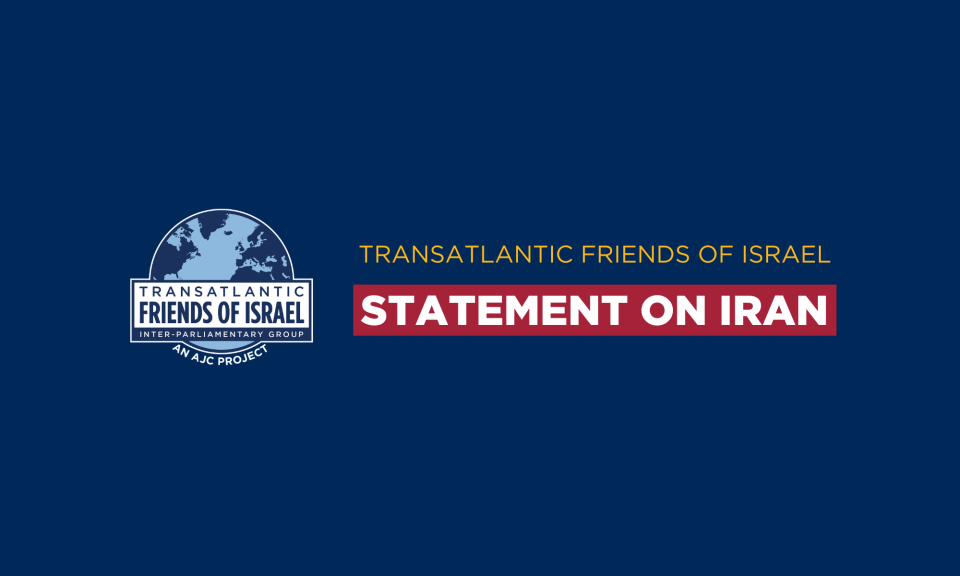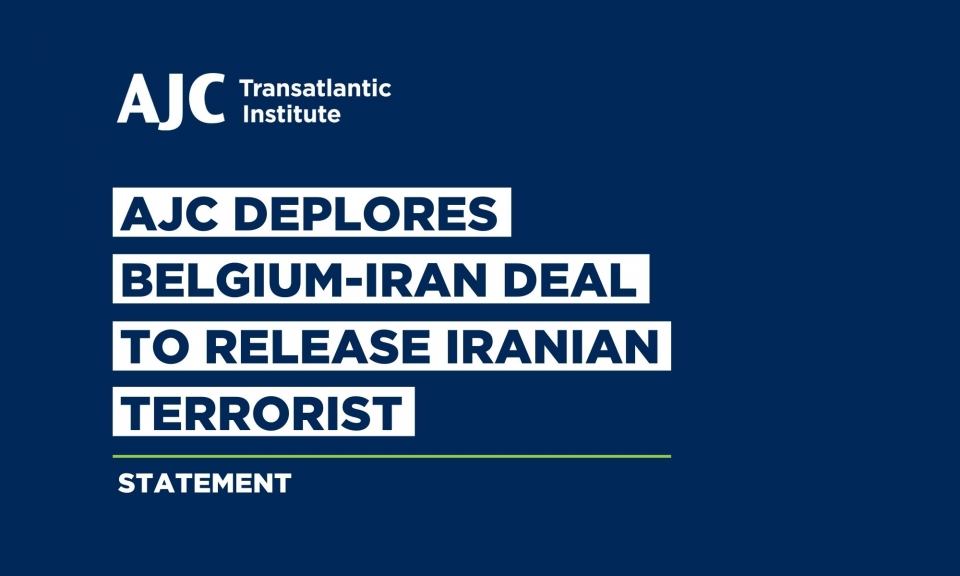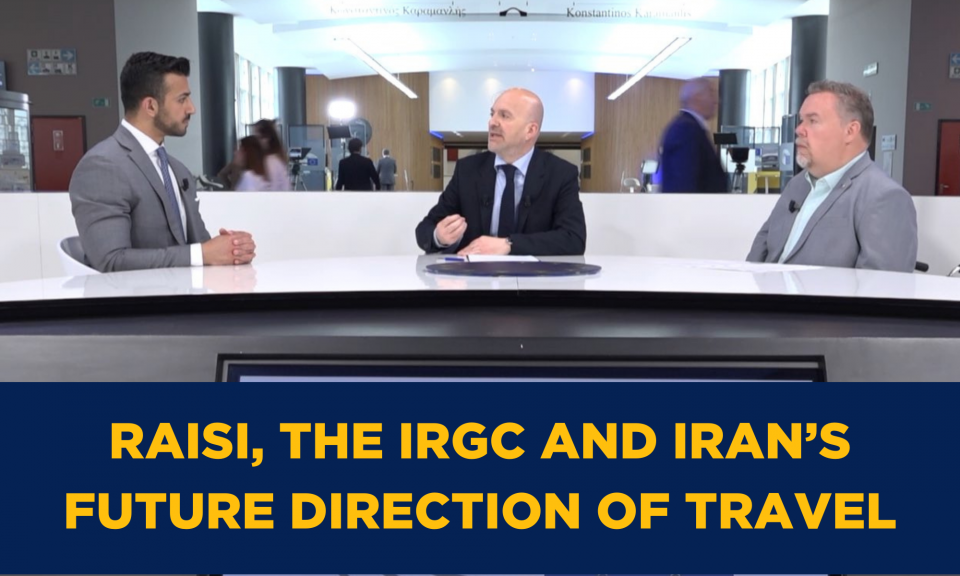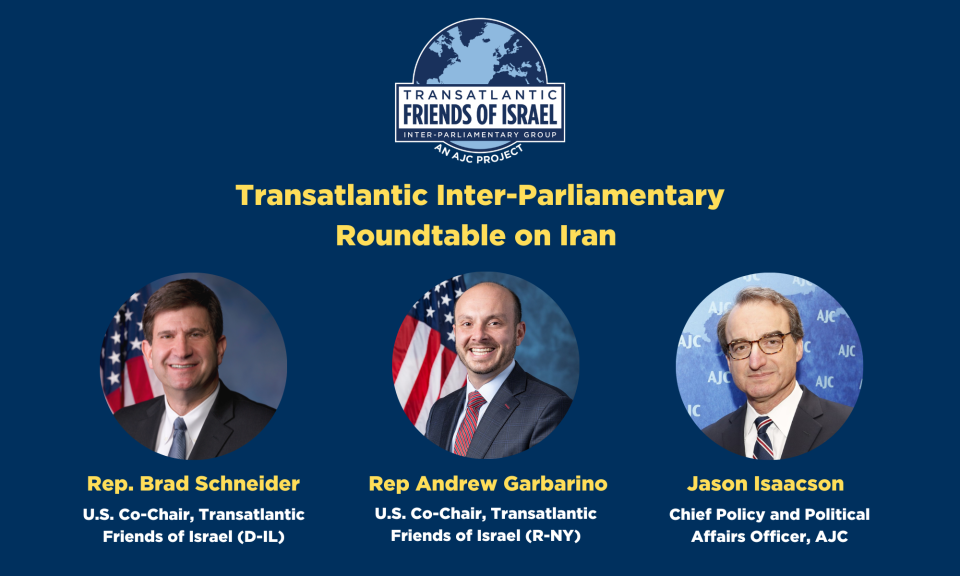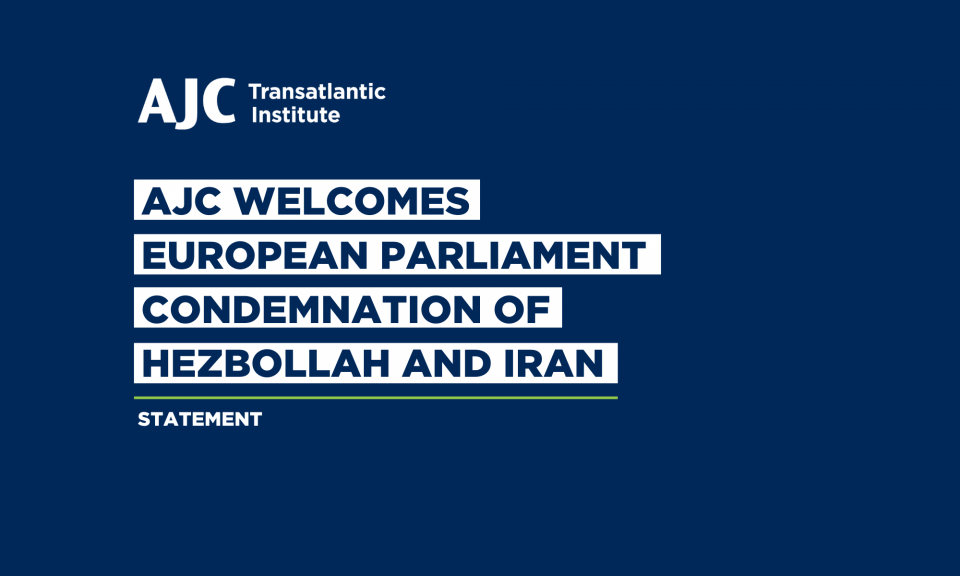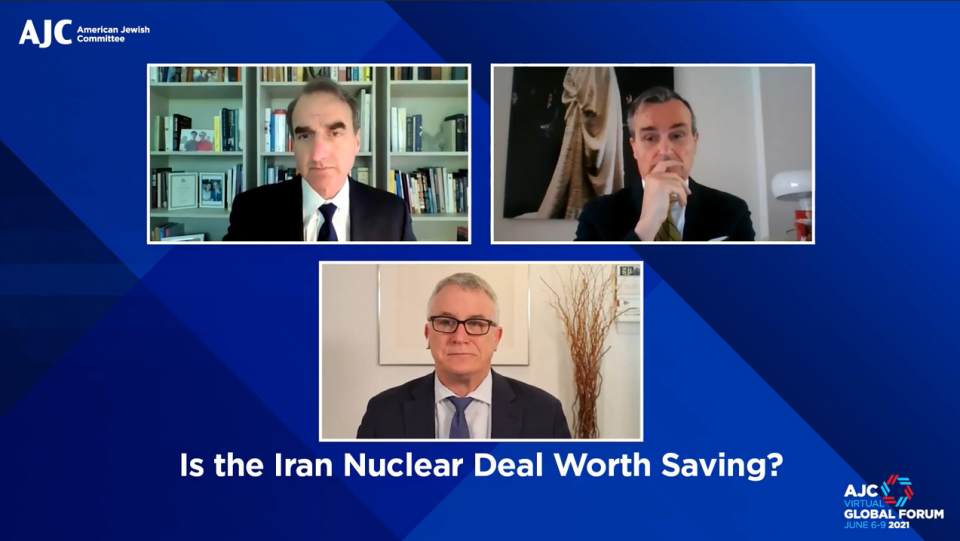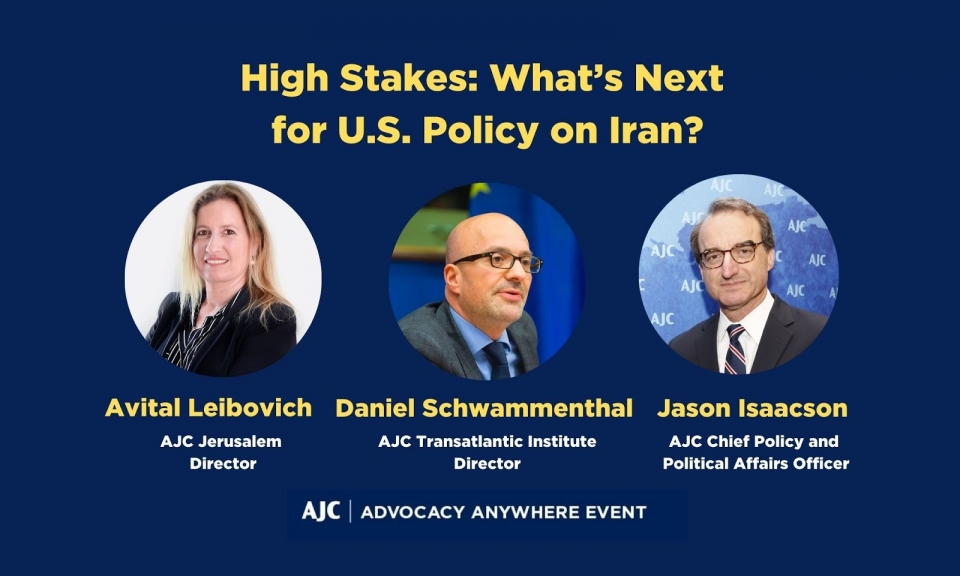Topic
Iran
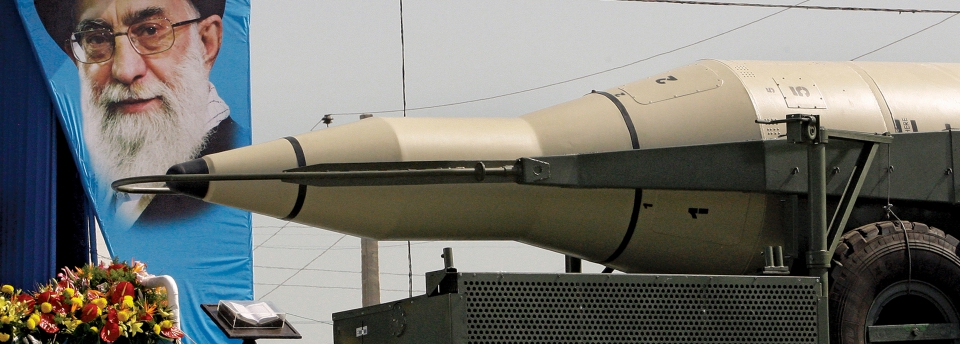
Sounding the Alarm on Iran's Pursuit of Nuclear Weapons and its Support for International Terrorism.
Iran's pursuit of nuclear weapons capability, its support for international terrorism, its efforts to subvert and attack its neighbors and its collusion with the murderous Assad regime in Syria jeopardize global peace and security.
For decades, AJC has been sounding the alarm on the Iranian threat. After several weeks of careful considerations, AJC decided in 2015 to oppose the Joint and Comprehensive Plan of Action (JCPOA) with Iran. Rather than dismantling Tehran’s nuclear infrastructure, as was the original objective, the agreement puts only a temporary freeze on the program while validating Iran’s future status as a nuclear threshold state.
Since the JCPOA is now in place, AJC advocacy continues to focus on two areas:
- Ensuring that the international community has the mechanisms in place to enforce the nuclear deal’s restrictions—as temporary and limited as they are—to intrusively monitor Iranian behavior, and reimpose sanctions in the event of any violation.
- Highlighting the need to confront Tehran’s regional aggression, the worsening human rights abuses at home and its support for international terrorism. Within this context, we consider it of critical importance to place the entire Hezbollah terror group, which is funded and controlled by Iran, on the EU terror list.
Related events
Media
AJC Transatlantic Institute Welcomes the European Parliament’s Resolution Calling for the IRGC to be Listed as a Terror Organization
Brussels, 28 November 2024 - The AJC Transatlantic Institute, the Brussels-based EU office of the American Jewish Committee, welcomes today’s European Parliament...
TAI Director Daniel Schwammenthal on Iran's Attack Against Israel
Brussels, 16 April 2024- TAI Director Daniel Schwammenthal joined TVP World to discus Iran's unjustified attack against Israel and the Jewish state's possible response. He highlighted that the Islamic Republic has been trying to destroy Israel for over 40 years and that Iran's proxy Hezbollah...
AJC Transatlantic Institute Welcomes the European Parliament’s Call for the Islamic Revolutionary Guard Corps to be Listed as a Terror Organization
Brussels – 18 January 2023 – The AJC Transatlantic Institute welcomes the European Parliament’s call for the Islamic Revolutionary Guard Corps (IRGC) to be listed as a terror organization. In an annual report on...
220 Lawmakers from Europe and North America Urge Terror Listing of Iran’s IRGC
December 8, 2022 – Brussels – Today, 220 lawmakers from Europe, the United States, and Canada urged Western democracies to designate Iran’s Islamic Revolutionary Guard Corps (IRGC) and its proxies, such as Hezbollah, as terrorist organizations. The legislators’...
AJC Deplores Belgium-Iran Deal to Release Iranian Terrorist
Brussels – 21 July 2022 – The AJC Transatlantic Institute deplores the Belgian Parliament's ratification of a Prisoner Exchange Deal with Iran, which will likely see the transfer and release of convicted terrorist Assadollah Assadi.
...
Raisi, the IRGC and Iran’s Future Direction of Travel - Video
As the EU attempts to make sense of the Raisi government and negotiate a new nuclear deal in Vienna, it is vital to understand Iran’s changing domestic land and Tehran’s future direction of travel. Counterpoint host Daniel Schwammenthal is joined by David Lega, a Swedish Member of the European Parliament and the EPP Group Standing and Monitoring Rapporteur on Iran and Kasra Aarabi, Senior Analyst at the Tony Blair Institute for Global Change.
AJC Convenes Lawmakers from Ten Countries on Transatlantic Responses to Iran’s Nuclear Program
April 5, 2022 — Washington, D.C. —American Jewish Committee’s Transatlantic Friends of Israel (TFI) inter-parliamentary group convened a virtual roundtable discussion on transatlantic responses to Iran’s nuclear ambition. Introduced by new American TFI co-chairs Reps. Brad Schneider (D...
AJC Welcomes European Parliament Condemnation of Hezbollah and Iran
Brussels – 17 September 2021 – The AJC Transatlantic Institute welcomes that the European Parliament adopted with overwhelming, cross-party support a Resolution on the Situation in Lebanon that specifically...
Is the Iran Nuclear Deal Worth Saving?
At AJC Virtual Global Forum 2021, two foreign policy veterans participated in The Max Fisher Annual Program, The Great Debate: Is the Iran Nuclear Deal Worth Saving? The session pitted Ambassador Gérard Araud, Ambassador of France to the United States (2014-19), the United Nations (2009-14), and Israel (2003-06) against Michael Doran, Middle East analyst and National Security Council Senior Director (2005-07). Moderated by Jason Isaacson, AJC Chief Policy and Political Affairs Officer.
High Stakes: What’s Next for U.S. Policy on Iran?
Having carefully studied the JCPOA, AJC opposed the 2015 nuclear accord, believing it was too risky a proposition. Six years on, the world is different, the Middle East is different, and America is different. Join AJC Jerusalem Director Avital Leibovich, AJC Transatlantic Institute Director Daniel Schwammenthal, AJC Chief Policy and Political Affairs Officer Jason Isaacson, and “People of the Pod” host Seffi Kogen as they analyze what the lifting of US sanctions against Iran could mean for the region.


